On the morning of November 4, under the direction of Vice Chairman of the National Assembly Le Minh Hoan, the National Assembly listened to the Presentation and Report on the examination of the draft Law amending and supplementing a number of articles of 15 laws in the fields of agriculture and environment.
Removing "bottlenecks", perfecting institutions
According to Minister of Agriculture and Environment Tran Duc Thang, the drafting of the Law aims to institutionalize the Resolutions and Conclusions of the Politburo, especially the policy of reorganizing the apparatus and two-level local government; strengthening decentralization and delegation; and at the same time removing "bottlenecks" in current legal regulations.
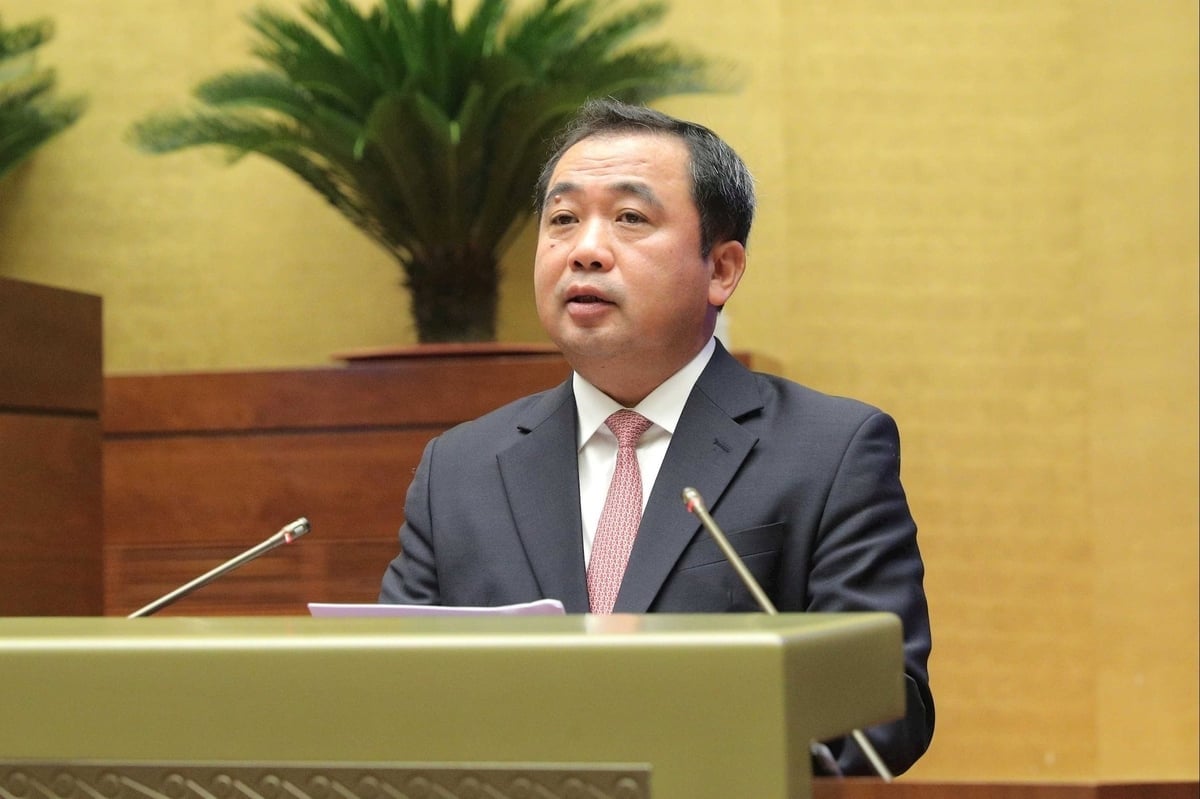
Minister of Agriculture and Environment Tran Duc Thang presents the Draft Law on amending and supplementing a number of articles of 15 laws in the fields of agriculture and environment. Photo: Quang Khanh.
The draft Law consists of 17 articles, of which 15 articles amend and supplement 15 laws, along with 2 articles regulating the effective date and transitional provisions. The amended and supplemented laws include: Law on Environmental Protection; Law on Plant Protection and Quarantine; Law on Animal Husbandry; Law on Biodiversity; Law on Dikes; Law on Surveying and Mapping; Law on Hydrometeorology; Law on Forestry; Law on Natural Disaster Prevention and Control; Law on Water Resources; Law on Marine and Island Resources and Environment; Law on Veterinary Medicine; Law on Irrigation; Law on Fisheries; and Law on Cultivation.
Minister Tran Duc Thang said that the Law project focuses on three major groups of contents, first, on the arrangement of the apparatus, decentralization and division of authority when organizing two-level local governments, the project is implemented in accordance with the provisions of Resolution No. 190/2025/QH15. Specifically, amending and supplementing 67 articles in 14 laws to divide authority in state management and 112 articles in 14 laws on decentralization of tasks of the Government, Prime Minister to Minister, and from Minister to Provincial People's Committee or Chairman of Provincial People's Committee.
Second, regarding the reduction and simplification of business investment conditions and administrative procedures, the draft Law amends and supplements 75 articles in 11 laws, abolishes business investment conditions in 26 articles of 8 laws, and adjusts 49 articles in 9 laws to create a favorable and fair business environment, with people and businesses at the center.
Third, regarding handling "bottlenecks" due to legal regulations, the Government identified 20 bottlenecks in 9 laws that need to be handled immediately in 2025, including 5 points that have been directed by competent authorities and 15 points that have been recommended by localities.
Some notable contents such as: Veterinary Law, exemption from conformity declaration in veterinary medicine quality management.
Law on Plant Protection and Quarantine allows the import of soil-bearing plants according to Government regulations.
Law on Cultivation, abolishing regulations on topsoil of land specialized for growing rice, adding regulations on management of packaging facilities.
Law on Animal Husbandry, removes the requirement of "national technical standards" in testing livestock lines, breeds, and animal feed.
Forestry Law, amending regulations on forest use conversion, replacement forestation and carbon absorption and storage services.
The Law on Water Resources regulates the prohibited act of "encroaching on or filling up rivers, streams, canals, ditches, and streams", adding authority to monitor underground water resources to the People's Committees at the provincial level.
Law on Dikes, clarifying regulations on dike protection corridors and handling of existing works and houses within the dike area.
Law on Environmental Protection, amending regulations on environmental sensitivity factors, environmental impact assessment, environmental protection infrastructure of industrial parks and Vietnam Environmental Protection Fund.
Law on Biodiversity, abolishing regulations on management of alien species.
Minister Tran Duc Thang affirmed that the draft Law not only focuses on the above groups of contents but also amends and supplements a number of regulations to ensure consistency with newly issued laws such as the Law on Inspection, the Law amending and supplementing the Law on Technical Standards and Regulations, or draft Laws being submitted to the National Assembly at the 10th session such as the Law on Geology and Minerals, the Law on Planning, and the Law on Investment.
After the National Assembly Standing Committee gave its opinions at the 50th Session, the Government received, explained and revised the draft Law, closely coordinated with the Committee on Science, Technology and Environment and relevant agencies to complete the content to submit to the National Assembly for consideration, discussion and approval.
The Government said that during the National Assembly's discussions in groups and in the hall, the presiding agency will continue to coordinate, absorb, explain and perfect the draft Law before submitting it for approval.
Need strong decentralization to localities
Presenting the Review Report, Chairman of the Committee on Science, Technology and Environment Nguyen Thanh Hai said that the Committee agreed with the necessity of promulgating the Law project following a shortened order and procedure. The project dossier was fully prepared, in accordance with the provisions of the Law on Promulgation of Legal Documents.
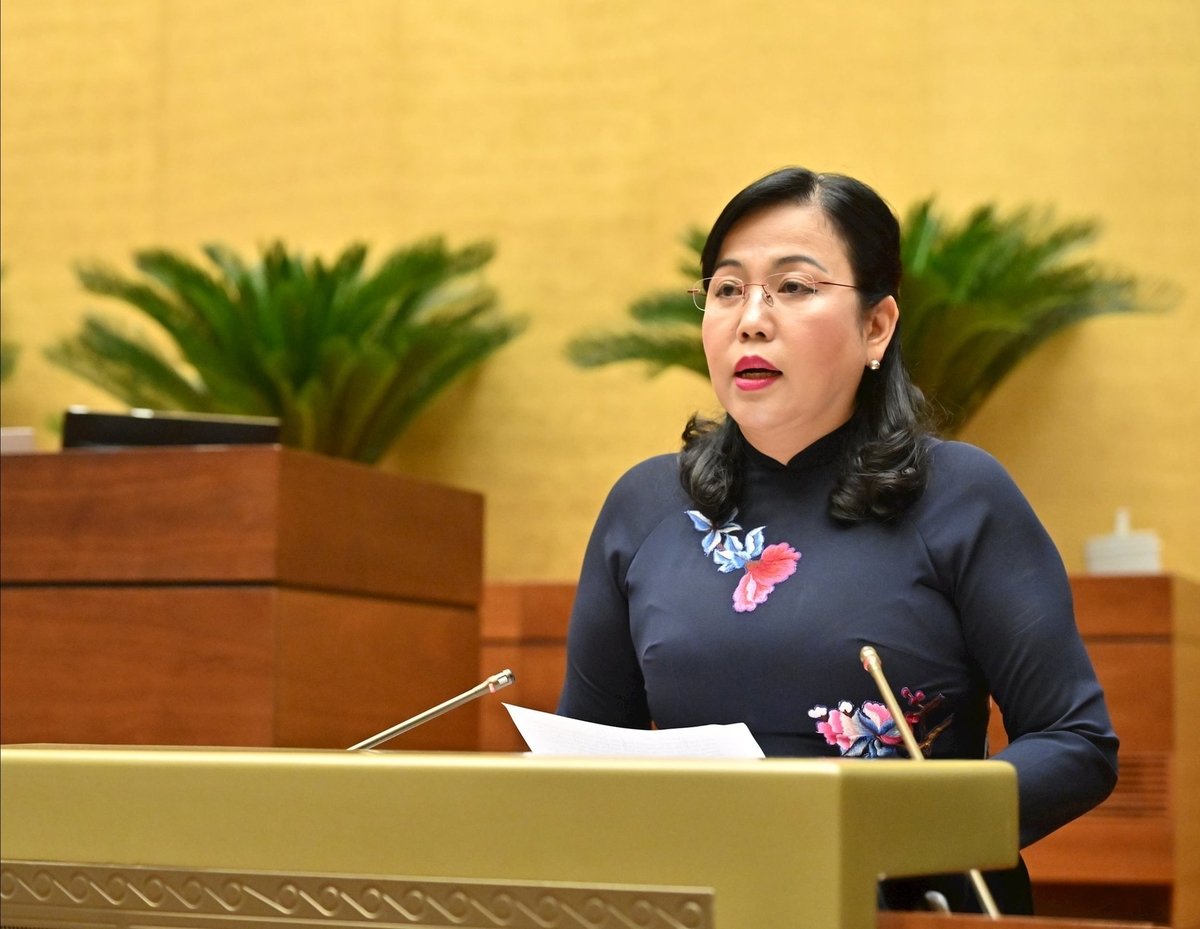
Chairman of the Committee on Science, Technology and Environment Nguyen Thanh Hai presents the Verification Report. Photo: Quang Khanh.
The Committee agreed that the draft Law has amended and supplemented regulations related to three major groups of contents: decentralization and delegation of power; reduction of investment conditions and administrative procedures; and handling of 20 legal "bottlenecks" in 15 amended laws.
Regarding the Law on Animal Husbandry, the Committee proposed to strongly decentralize the authority to grant, re-grant and revoke Certificates of eligibility for animal feed production to localities (Clause 1, Article 39), ensuring compliance with Conclusion No. 183-KL/TW of the Politburo.
Regarding the Law on Veterinary Medicine, the Committee proposed to review the regulations on exemption from declaration of conformity in the veterinary field (Clause 2, Article 78), ensuring flexibility in management but still assigning specific responsibilities to state management agencies in controlling the quality of veterinary drugs before circulation. At the same time, it is necessary to clarify alternative measures when abolishing the procedure for declaring conformity of veterinary drugs, as well as the impact on the control of drug quality after circulation.
Regarding the Forestry Law, the Committee proposed to review the provisions in Clause 2, Article 19 on converting forest use purposes to other purposes, ensuring suitability with reality, compliance with Directive 13-CT/TW dated January 12, 2017 of the Secretariat on strengthening forest management, protection and development; at the same time, it is necessary to clarify the concept of "forest area" to accurately determine forest status during implementation.
With the Law on Water Resources, it is necessary to clarify the scale and content of local adjustments to the operating procedures of reservoirs and inter-reservoirs (Article 38) when assigning authority to the Minister of Agriculture and Environment to decide on approving adjustments and reporting to the Prime Minister. The draft Law also needs to clearly stipulate the responsibilities and coordination mechanism between the Ministry of Agriculture and Environment and relevant agencies in cutting and reducing floods for downstream areas.
Regarding the Law on Cultivation, the Committee recommends carefully considering the removal of the content on the topsoil layer of land specialized for wet rice cultivation (Clause 10, Article 9). Accordingly, the Government should be assigned to provide detailed guidance to retain the nutritional value of crops, protect the land fund for rice cultivation, ensure national food security and allow flexible use of some rice land areas for other purposes without losing the conditions for rice cultivation again.
Source: https://nongnghiepmoitruong.vn/xu-ly-ngay-20-diem-nghen-phap-luat-ve-nong-nghiep-va-moi-truong-d782192.html




![[Photo] Panorama of the Patriotic Emulation Congress of Nhan Dan Newspaper for the period 2025-2030](https://vphoto.vietnam.vn/thumb/1200x675/vietnam/resource/IMAGE/2025/11/04/1762252775462_ndo_br_dhthiduayeuncbaond-6125-jpg.webp)


![[Photo] Opening of the 14th Conference of the 13th Party Central Committee](https://vphoto.vietnam.vn/thumb/1200x675/vietnam/resource/IMAGE/2025/11/05/1762310995216_a5-bnd-5742-5255-jpg.webp)
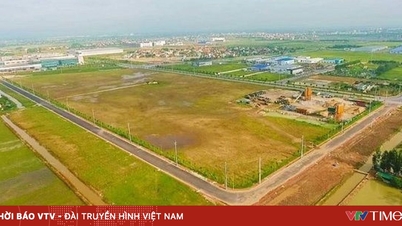


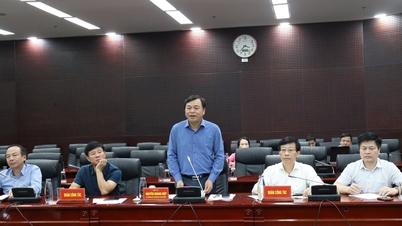

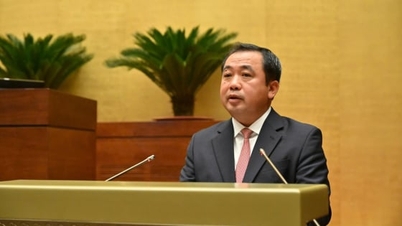
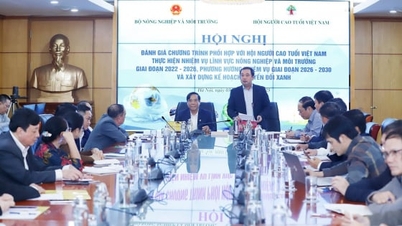
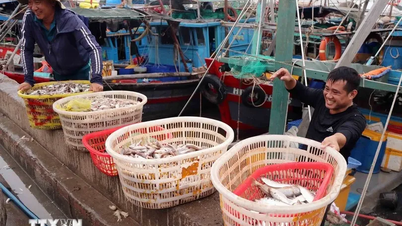



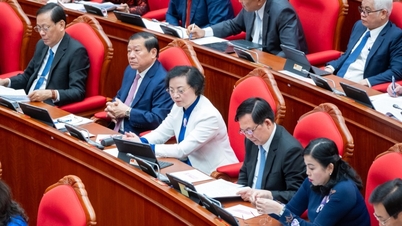

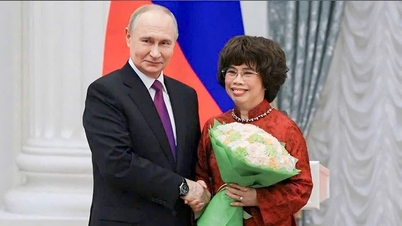

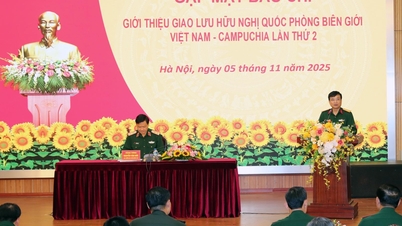







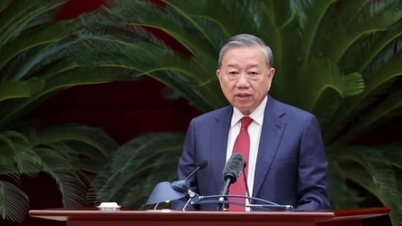
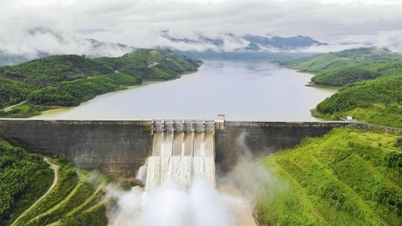

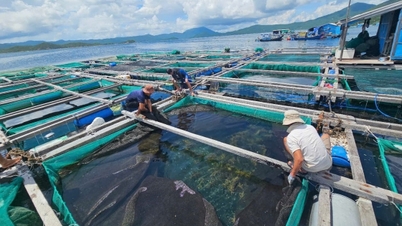

![From working for hire to becoming a boss: [Lesson 5] Sending - learning - returning - creating](https://vphoto.vietnam.vn/thumb/402x226/vietnam/resource/IMAGE/2025/11/05/1762297489528_1546-anh-3-072934_320.jpeg)


















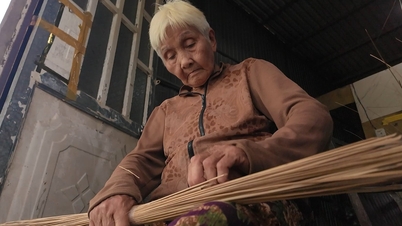













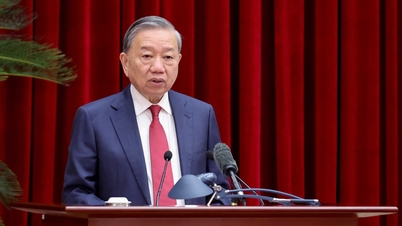

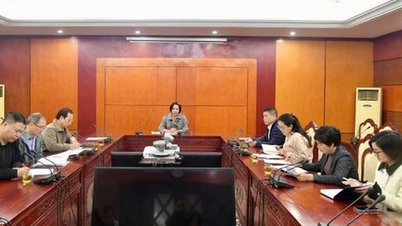


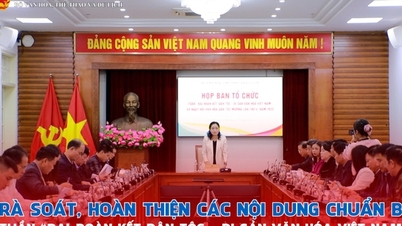




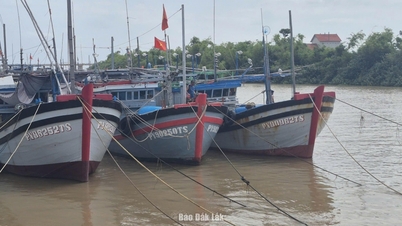





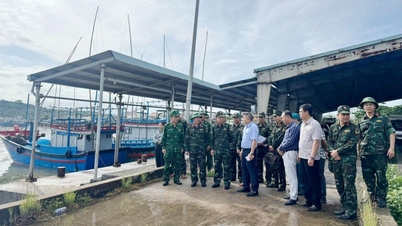
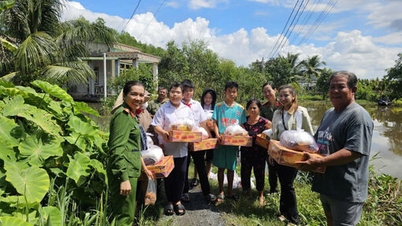










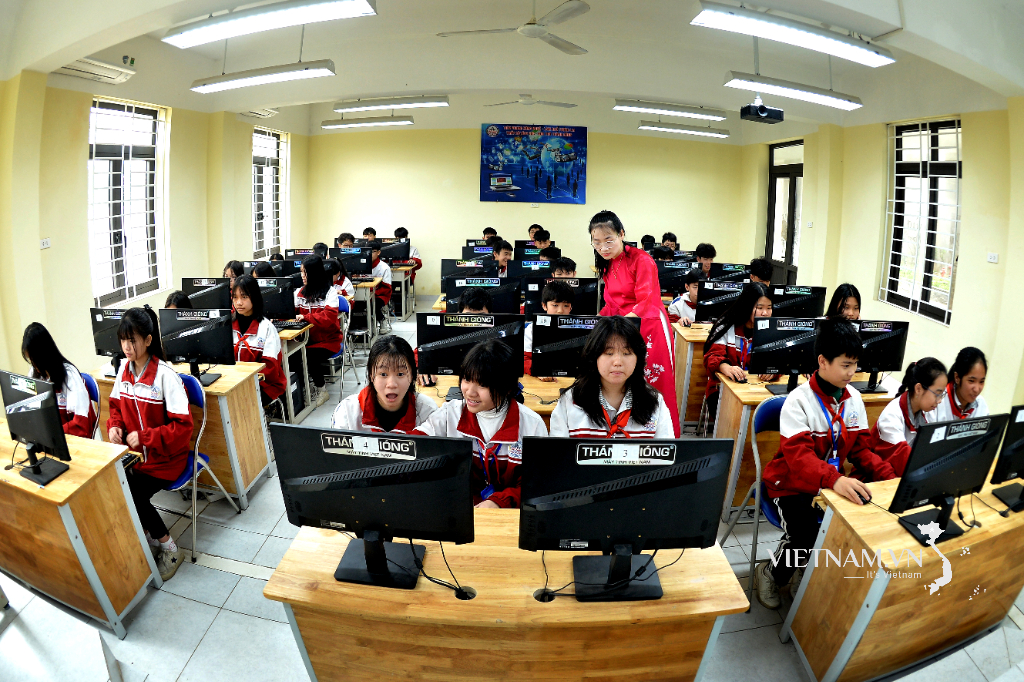



Comment (0)